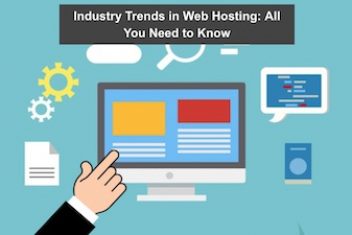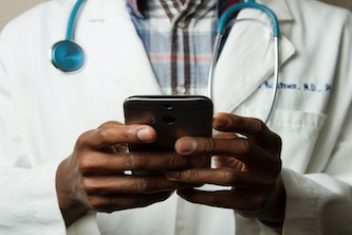Mobile phone integration to monitor and improve health outcomes is a fast-growing activity known as mobile health (mHealth) technology.
Medical professionals increasingly employ mHealth to access patient portals, while patients use it to contact their doctors to take care of themselves.
This article will help you understand the pros and cons of mHealth and what the medical sector thinks about it. We’ll also help you choose the best mHealth apps.
What Is mHealth?
mHealth uses mobile phones and other wireless technologies in medical treatment.
How Can mHealth Help Us?
When appropriately implemented, mHealth can considerably enhance the quality of life and produce ease of care. Here are the pros of adopting mHealth:
Patient Care
Improved communication and access to information are vital for overall patient care, and mHealth provides this need. It gives clinicians access to point-of-care technologies and transforms workflow and communication to benefit patients and healthcare professionals.
Read: 7 Reasons Why Mobile Apps Are Essential To Healthcare Industry
Improved Monitoring
Patients who have health problems but cannot physically see a doctor can use a mHealth app to converse. Your doctor will speak to you and monitor your current condition, thus, improving your health.
Paperless Information
Going paperless decreases office and hospital supply expense, eliminates waste, reduces medical office clutter, and helps keep patient data safe and organized.
Ease of Access
Most emergency apps include widgets that you can pin to the home screen for easy access.
One in ten patients who require CPR survive due to local support, according to Futurity. It is pretty beneficial to have mobile applications that clearly explain how to react in an emergency circumstance.
Read: Healthcare Software Outsourcing Companies – 5 Reasons Why You Should Choose One
Appointment Scheduling
In a report, one clinic lost close to $1 million due to 14,000 no-shows in a year.
Also, 77% of patients believe it is critical to schedule, alter, or cancel appointments.
Education
The research found that 75% of medical schoolteachers, 95% of residents, and 55% of students believed that having mobile devices to access instructional materials on the road was beneficial.
How Might mHealth Harm Us?
Is it possible that mHealth will do more harm than good? Here are mHealth technology’s cons:
Lack of Regulation
Experts say mHealth apps are “low-risk,” meaning they are noninvasive and unlikely to cause significant bodily damage. Thus, the FDA believes they do not need regulation in the same way that drugs and other therapies do.
Numerous mHealth Apps, but Quality Isn’t Quantity
In 2018, there were over 105,000 mHealth apps downloadable on Google Play. Today there are roughly over 300,000 available.
Most companies of these applications don’t undertake studies to establish whether their app genuinely helped users improve their behavior, according to a University of Texas MD Anderson Cancer Center paper.
Read: How Smartwatches Can Improve Your Health
It’s Hard to Tell What’s a Safe, Helpful mHealth App
While the FDA has not evaluated the safety and effectiveness of such instruments, it has warned that misdiagnosis might result in a person returning to regular activities rather than obtaining medical care.
mHealth Is Not Accessible to Everyone
In 2019, a Pew Research Center poll concluded that 96% of Americans aged 18-29 possess a smartphone, followed by 30-49 (92%), 50-64 (79%), and 65+ (53%) years old.
It indicates that not everyone has access to mHealth apps.
Read: Best Healthcare Apps for Patients
Security
Many mHealth features require patient personal information.
One of the largest hacks ever occurred is from the MyFitnessPal, a famous wellness app. It had 150 million members’ credentials stolen, such as their users’ identities, e-mail addresses, and passwords.
Clinical Trial Issues
Different systems have different capabilities. Android, for example, allows for data collecting in the background, but iOS does not, or at least not as expansively. If you want to run the analysis using an app, this option will potentially affect your results.
How To Choose the Right App and Qualified Doctor on mHealth Platforms?
Because there are a lot of mHealth apps out there, choosing the right app and qualified doctor on mHealth platforms might be challenging. Thus, we examined the following and found that they are worth your time and space on your phone.
Read: How sleeping with your phone increases the risk of cancer and infertility
Doctor On Demand
Doctor on Demand app is a popular telemedicine service that delivers on-demand treatment for physical and mental health concerns through an iOS or Android app.
Talkspace
Talkspace is an interactive therapy platform connecting consumers to a qualified expert with a professional license. It has certified therapists and psychiatrists through its mobile app for Android and iOS.
Heal
The Heal app for Android and iOS allows users to book a home visit with a doctor for various services in certain U.S. cities.
Fitbit
This platform allows users to track their activity, workouts, heart rate, and calories, whether they use a Fitbit device or manually enter their data into the mobile app on their smartphone.
GoodRx
The GoodRx app helps users scan over 75,000 pharmacies for the best rates on prescription drugs.
Read: Your computer mouse is twisting your arm every second. How to avoid a potential surgery
What Is the Medical Industry Saying About mHealth Mobile Apps?
In 2018, Spyglass Consulting Group polled 90% of hospitals and found that they are investing heavily in smartphones and secure mobile communications technologies.
Most hospitals have developed mobile strategies to support clinical professionals and other mobile employees across medical departments, independent hospitals, and ambulatory settings.
Read: Healthcare Solutions Software Development
Conclusion
If you use mHealth, check its security and privacy policies. Also, before using a mHealth app, consult a qualified expert with a professional license to verify the app’s reliability and efficiency.
If you like the content, we would appreciate your support by buying us a coffee. Thank you so much for your visit and support.



